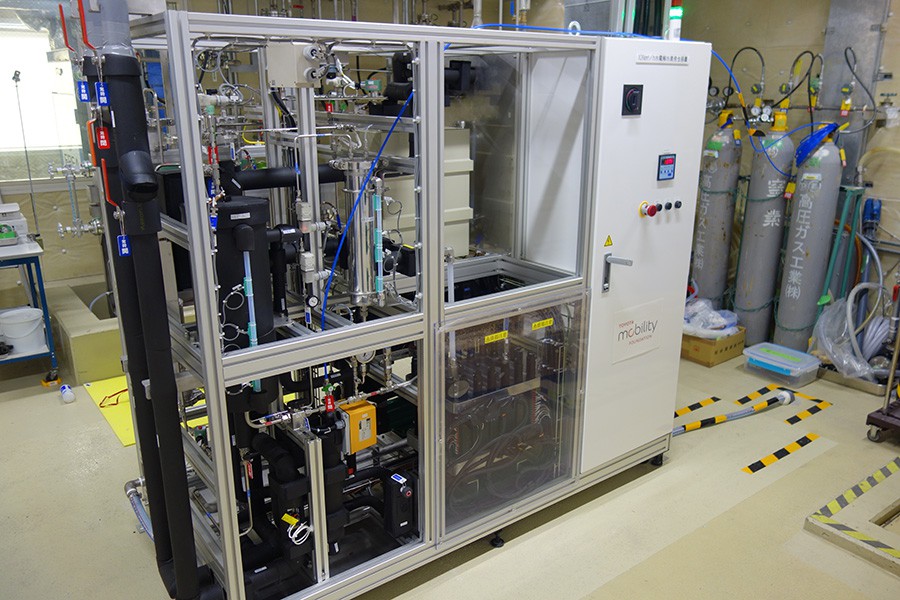To realise a decarbonised society, the introduction of a large amount of renewable energy is essential. However, renewable energy is characterised by the fact that its ability to generate power fluctuates depending on the weather and the time of day. There is hope that hydrogen can serve as a regulating force to adjust such fluctuations in power, and water electrolysis is a key technology for converting that energy.
This review article investigated a wide range of issues for each major water electrolysis method, such as restrictions on using renewable energy as a power source for water electrolysis, the durability of water electrolyzers, and catalyst degradation. It then described the performance requirements for water electrolysis systems and materials that can adapt to renewable energy fluctuations and the issues that need to be discussed going forward.
TMF has positioned environmental and energy issues as important themes for a sustainable mobility society, and in 2017, established the “Research Program to Support Innovative Hydrogen Energy Solutions” that targets carbon-free hydrogen (green hydrogen) cost reductions across the entire hydrogen supply chain of “producing,” “transporting,” and “using.” In this program, 29 promising research themes have been selected and provided grants through open calls over three years. Additionally, regular evaluations and advice by an evaluation committee of experts in hydrogen and energy systems and opportunities for exchanges and mutual study among selected researchers have been provided.
In October 2020, the Japanese government made a “Carbon Neutrality by 2050” declaration. For realising a decarbonised society, in addition to supporting basic research by individual researchers, in April 2021, TMF started a new joint research program to be conducted by teams of researchers. In this joint research program, two working groups (WG) were formed to focus on two important themes for realising a decarbonised society, “Hydrogen Society & Energy Systems” and “Water Electrolysis.” Five researchers for each WG were selected under the “Research Program to Support Innovative Hydrogen Energy Solutions.”
Based on information obtained by conducting literature reviews on the impact of renewable energy power fluctuations on water electrolysis systems, the research team has started research using a practical water electrolysis device installed with the cooperation of the National Institute of Advanced Industrial Science and Technology. To date, few published studies have investigated the behavior, performance degradation, and effects on durability caused by fluctuations in renewable energy power output using actual equipment. The results of this study are expected to contribute to solving problems related to improving performance and reducing the costs of water electrolysis.
Since its founding, the Toyota Motor Corporation (TMC) has conducted its business activities with the aim of creating a prosperous society through automobiles while respecting all stakeholders, including customers, business partners, employees, and the local communities in which it operates. Accordingly, Toyota Mobility Foundation (TMF) was established in August 2014 to conduct activities that benefit the public good.
Aiming to realise a mobility society where everyone can move about freely, TMF is working to solve mobility issues worldwide through a diverse range of projects. Going forward, the Toyota Group, working in cooperation with various partners and utilising the technologies and knowhow it has cultivated through its business activities, will continue to promote undertakings that are aligned with the UN Sustainable Development Goals (SDGs) while contributing to the realisation of a society where people can lead rich and fulfilling lives.
Ends.











